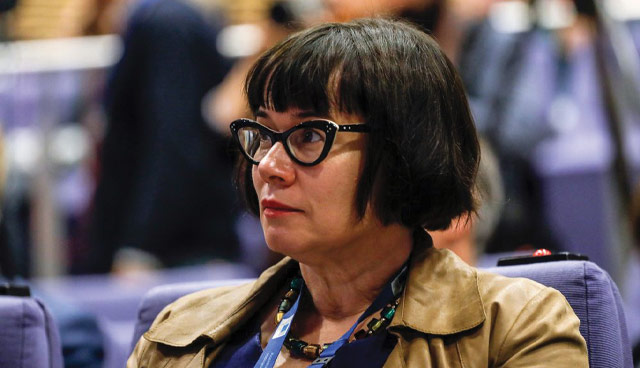Negotiating is over, it’s on to trade

With Conservative leadership candidates vying for position and making claims around the re-negotiation of the withdrawal agreement, that the EU has concluded its negotiations has been emphasised by the promotion of its deputy Brexit negotiator.
Sabine Weyand’s promotion to Director-General of the European Commission’s trade department in June is a clear sign that the EU has already moved on from the withdrawal agreement and further indication that it is not open for renegotiation.
Weyand was a senior player in the Article 50 Taskforce set up to negotiate the UK’s exit and led by Michel Barnier and the long-serving senior civil servant in Brussels is credited with being one of the key architects of the agreement.
The West German’s promotion may come as a blow to those within the UK who believe that a crash out exit could facilitate better terms in a future trade deal with Europe than is being proposed through the current mechanisms.
Weyand’s new commission will be the lead negotiator in trade talks with the UK in the event of Brexit.
In a rare public outing earlier this year, with the Article 50 Taskforce usually fronted publicly by Barnier, Weyand said that the backstop was heavily shaped by British negotiators and that it will not be amended, stating: “There is no negotiation between the EU and UK, that negotiation is finished.”
Having been described as a “mastery of technical detail”, Weyand has already joined the Commission, which is headed up by Cecilia Malmström, and which is currently working on new deals with Australia, New Zealand and potentially the USA, on top of the 38 trade agreements it has already negotiated with more than 60 countries.
Weyand lived and studied in the UK in the 1980s, attending Cambridge to study philosophy and English literature. Her previous roles in Brussels include the areas of climate, energy and development, as well as a stint under EU trade commissioner, Pascal Lamy, in the European parliament.
POLITICO Europe identified Weyand as the eighth most influential woman in Brussels, calling her a “Commission problem-solver”. As he announced Weyand’s appointment, Commission President Jean-Claude Juncker said she belonged to the Commission’s “best and brightest”.
The EU has said that it is willing to make changes to the non-binding part of the Brexit deal on future ties, the political declaration, but has refused to reopen the divorce deal. Weyand’s departure and suggestions that Barnier could be in the running to become the EU Commission’s next President, appears to be a clear indication from the EU that the agreement will not be negotiated. Despite this, many of the Conservative leadership candidates are standing on a pledge of reopening negotiations.
The UK is expected to either ratify the exit treaty, opt for a no-deal Brexit, or cancel its departure on October 31st. After two previous extensions, it is unlikely that a further delay could be granted given that the date marks the start of the new five-year political cycle in Brussels, with a new European Commission taking office.





